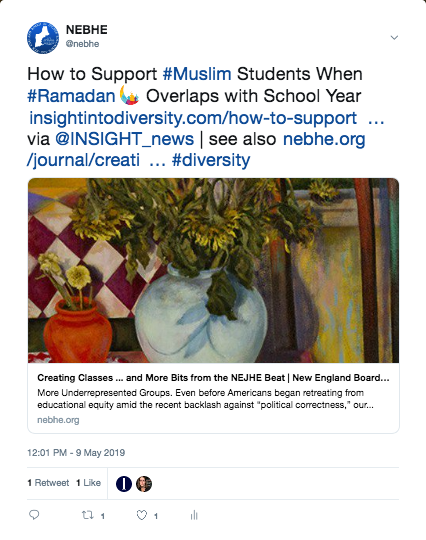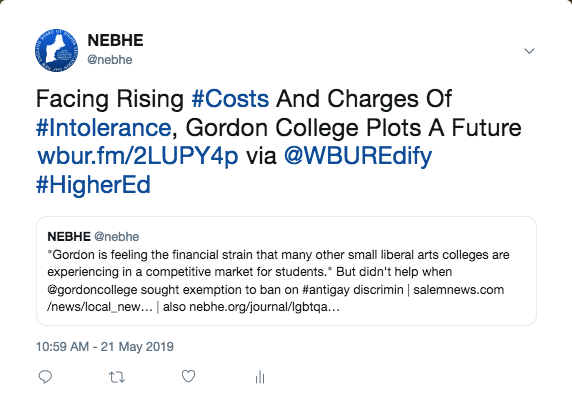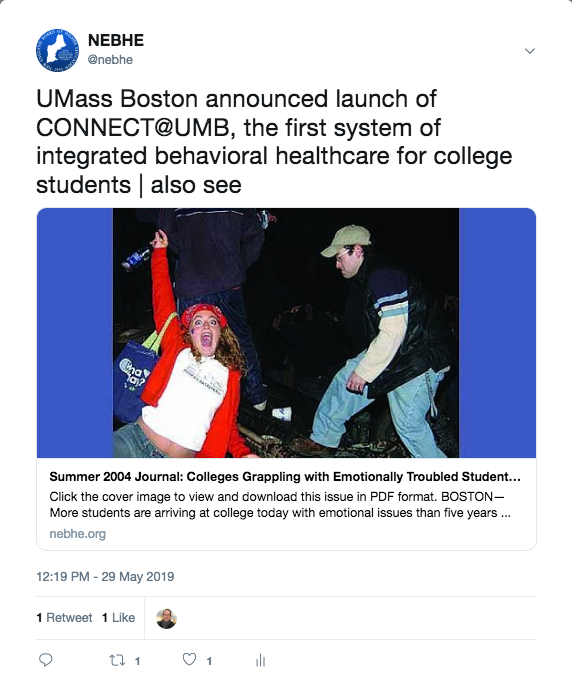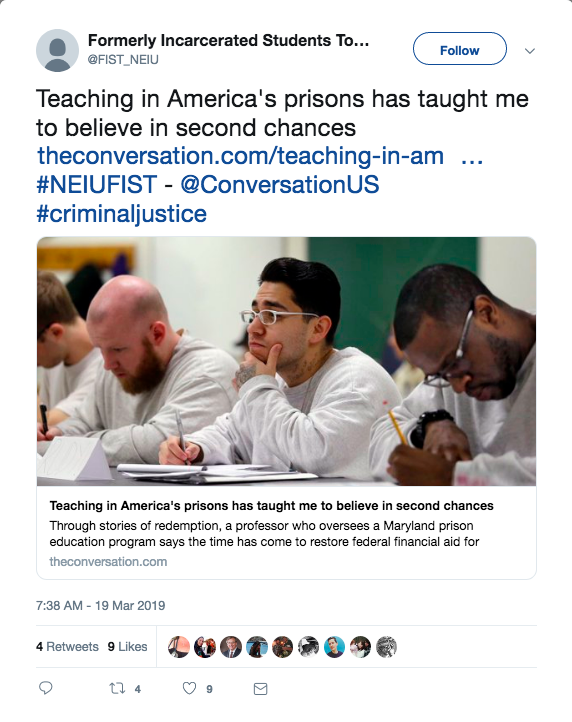 Our Twitter content allows us to bring readers a broader base of resources—a larger canvas, in a sense—than NEJHE articles alone. We urge you to see us as parts of a whole.
Our Twitter content allows us to bring readers a broader base of resources—a larger canvas, in a sense—than NEJHE articles alone. We urge you to see us as parts of a whole.
Every NEJHE item automatically posts to Twitter, but we also use Twitter to disseminate interesting news or opinion pieces from elsewhere. These tweets are often juxtaposed with something NEBHE has worked on in the past and sometimes presented with an added comment.
In the past couple months, many of our tweets and NEJHE articles have touched on the enrollment pressures bearing down on higher education institutions and the often-underrepresented groups that could buoy them. These groups include traditionally underserved black, Hispanic and Native American students, but also Muslims, LGBTQ students, students with disabilities or social and emotional challenges, rurally isolated students, those affected by incarceration and the many caught in America’s harsh immigration system.
In May, we took to Twitter to re-post a piece from INSIGHT Into Diversity reminding educators to be mindful of students fasting during Ramadan.

Among other recent tweets you may have missed that also tease out the enrollment-financial sustainability conundrum, consider …

Meanwhile, the scourge of mental and emotional problems on New England campuses only intensifies as an opiate haze hits surrounding New England communities especially hard. Good news is that mental health stigma is being addressed and students are being helped by initiatives like CONNECT@UMB at UMass Boston.

The debate over immigration is also coloring our national and regional education and economic future. Note, for example, these key pieces we’ve re-tweeted from the Maine Center for Public Interest Reporting’s Pine Tree Watch and the Boston Globe, as well as frequent NEJHE coverage of DACA and immigration.


And don’t forget incarcerated students; the U.S. jails more people than any other country in the world.

The challenges facing New England higher education and the regional economy are complex, marked in some cases by stale business models and, crucially, declining cohorts of traditional college-age students. One thing’s for certain: We need to make sure groups of people who may not have fully participated in the past are now afforded access to quality education and support to succeed.
John O. Harney is executive editor of The New England Journal of Higher Education.
Painting of “Small Porch Series #1” by Montserrat College professor Timothy Harney.
Related Posts:
Limited Characters Spell Austerity
Real Tweets, Fake News … and More from the NEJHE Beat
[ssba]
